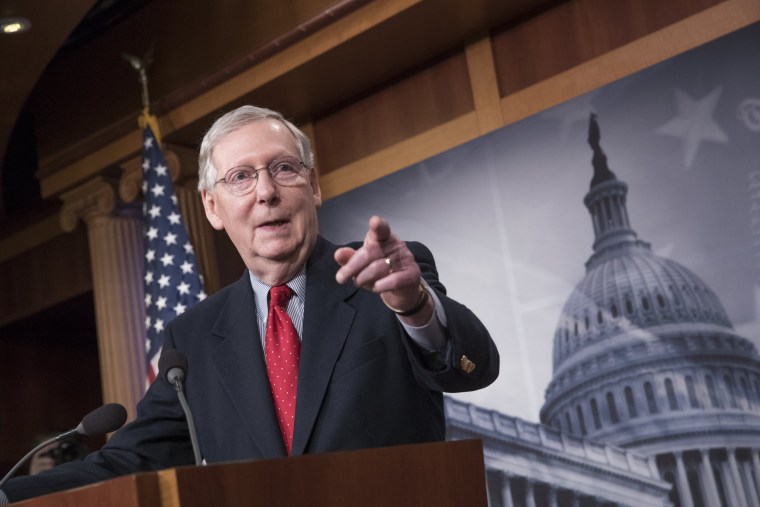Senate Majority Leader Mitch McConnell said Friday that, while he approves of President Donald Trump’s policy agenda, he would prefer a little less of the “extra discussion.”
“I’m not a great fan of daily tweets, what I am a fan of is what he’s been actually doing,” McConnell told reporters during a rare press conference.
“I’ve not been a fan of the extra discussion that he likes to engage in,” he added. “But we’re going to soldier on. We like his positions.”
The Kentucky Republican’s comments come the day after Trump held a wide ranging and at times combative 75-minute press conference. One of the main topics at hand was the Trump administration's relationship with Russia after National Security Adviser Michael Flynn resigned Monday for misleading Vice President Mike Pence and other senior officials about a conversation he had with the Russian ambassador to the U.S.
The president said no one that he knows of from his staff had contact with Russian officials during the contentious race Moscow attempted to influence through cyber intrusions.
When asked whether if he believed Trump, McConnell simply said, “I have no idea.” An aide to McConnell clarified after the press conference that the senator thought the question was about whether or not he believed members of Trump’s campaign contacted Russian officials, not whether he believed the president’s answer was truthful.


